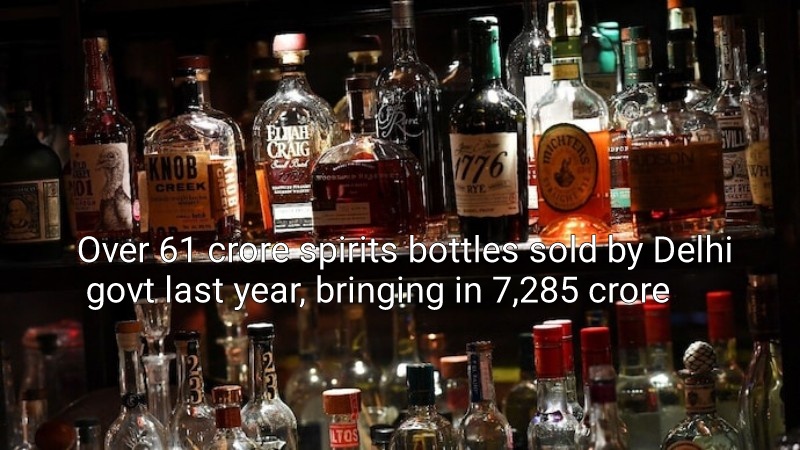
According to officials, the Delhi government’s current excise policy resulted in the sale of more than 61 crore spirits bottles, which generated revenue of more than Rs 7,285 crore in the previous year.
The Delhi government implemented the tax policy (old), which has been in effect since September 1, 2022, after its ambitious new excise policy for 2021–2022 came under scrutiny by the Central Bureau of Investigation (CBI) for alleged irregularities in its execution.
An Excise Department officer reported that the total amount of excise income collected between September 1, 2022, and August 31, 2023, including the value-added tax (VAT) collection of Rs 2,013.44 crore, was Rs 7,285.15 crore.
In contrast, the new excise policy generated Rs 5,487.58 crore in income in 2021–22. The Delhi government withdrew the new excise policy, which allowed private parties to participate in retail spirits sales, last year after Lieutenant Governor (LG) VK Saxena suggested a CBI investigation into suspected anomalies in its execution, according to authorities.
Manish Sisodia, who was the deputy chief minister and minister of excise at the time, was detained by the CBI as part of an investigation into alleged anomalies in the excise policy for 2021–2022. On November 17, 2021, the policy went into effect. It was completed in August 2022.
On September 1, 2022, the previous excise regime went into effect, and the government of Delhi took control the city’s retail spirits sales.
According to officials, over 600 retail locations have been opened by the four Delhi government enterprises since September 1, 2022: Delhi State Industrial and Infrastructure Development Corporation (DSIIDC), Delhi Tourism and Transportation Development Corporation (DTTDC), Delhi Consumer’s Cooperative Wholesale Store (DCCWS), and Delhi State Civil Supplies Corporation Limited (DSCSC).

Post Your Comments